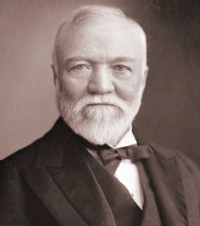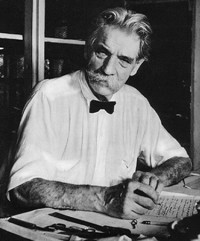 The days of winter are becoming darker, shorter, and colder. With them grows within us a sense of gloom. Bad financial news is rampant both at work and at home, causing us to sense an undercurrent of anxiety, even fear. Holidays are approaching, and we know we’re ‘supposed’ to be joyful, but we just cannot find much for which to give thanks.
The days of winter are becoming darker, shorter, and colder. With them grows within us a sense of gloom. Bad financial news is rampant both at work and at home, causing us to sense an undercurrent of anxiety, even fear. Holidays are approaching, and we know we’re ‘supposed’ to be joyful, but we just cannot find much for which to give thanks.
In this season suicide attempts climb, mental health facilities fill up, counselors overbook their schedules, and the number of antidepressant prescriptions soars! Justifiably, people want a cure for the blues. But medications take weeks to begin working, counselors start at $80 per hour, and who really wants to be in “therapy”?
Let’s consider a “new” solution: therapeutic giving
Selfless giving is a potent cure for melancholy and depression. In his landmark book, Give To Live, Douglas M. Lawson, PhD, reveals the findings of extensive research on the health effects of giving. It didn’t matter what people gave away. Gifts of time, money, or material possessions all had a similar affects. The factor that mattered most was the frequency and the attitude with which people gave. Those who made giving a regular part of their lives experienced improved relationships, better sleep, longer life expectancy, and significantly less depression.
One of the most visible examples of therapeutic giving at work can be seen in the life of Andrew Carnegie. This impoverished Scottish immigrant established the Pennsylvania steel industry in 1865 and by 1900 sold it for $480 million. But Carnegie hit a snag along the way. He became plagued by despair and paralyzed by physical illnesses linked to depression. His solution? Give away his wealth!
In 1889, Carnegie wrote The Gospel of Wealth, stating that all personal wealth beyond what was required by one’s family should be regarded as a trust fund to benefit the community. Carnegie added, “The man who dies thus rich dies disgraced.” Carnegie established organizations that, among other objectives, founded 2,509 libraries around the world. Carnegie also became known as one of the most joyous philanthropists of his day.
Few of us have access to the abundance of Carnegie, but the power of giving is undeterred by one’s financial resources. Albert Schweitzer was not particularly wealthy; but he was wise. By age thirty, Schweitzer had become a popular philosophical author whose books were widely read in Europe and America. But Schweitzer still found his life incomplete.
 In his autobiography, Out Of My Life And Thought, Schweitzer wrote, “It struck me as inconceivable that I should be allowed to lead such a happy life while I saw so many people around me struggling with sorrow and suffering? I had already tried many times to find the meaning that lay hidden in the saying of Jesus: ‘Whosoever would save his life shall lose it, and whosoever shall lose his life for My sake and the Gospel shall save it.’ Now I had found the answer.”
In his autobiography, Out Of My Life And Thought, Schweitzer wrote, “It struck me as inconceivable that I should be allowed to lead such a happy life while I saw so many people around me struggling with sorrow and suffering? I had already tried many times to find the meaning that lay hidden in the saying of Jesus: ‘Whosoever would save his life shall lose it, and whosoever shall lose his life for My sake and the Gospel shall save it.’ Now I had found the answer.”
Schweitzer resolved to leave the university where he taught, to become a doctor, and to establish a hospital in equatorial Africa. His friends and relatives reproached him over such folly. Why waste such a glorious, gifted career to serve faceless Africans on another continent?
Schweitzer prevailed over their protests and entered medical school in Germany. Next, using the funds earned from his own book royalties and personal appearances, Schweitzer moved to Gabon in 1913 where he began caring for ill Africans and constructing a hospital. The rest of his life was devoted to the health care of the people in the region.
Far away but not forgotten, Schweitzer welcomed journalists to Gabon, whose reporting on his ministry inspired an entire generation of medical professionals. In 1952, Schweitzer received the Nobel Peace Prize and used the money to further expand the hospital and leprosy center. In 1955, Queen Elizabeth II awarded Schweitzer the “Order of Merit,” Britain’s highest civilian honor. Concerning the personal and emotional impact of his ministry, Schweitzer wrote, “It amazed me to experience how serving the love preached by Jesus sweep me into a wonderful new course of life!”
As we ourselves pass through life’s turmoil, where shall we turn for relief? Indeed, some people benefit from counseling or medication. But we also do well to consider adding the natural, timeless remedy of therapeutic giving. Begin with simple steps towards becoming more generous. Give to a charity. Sponsor a child. Offer your skills to a non-profit organization. Give for the sheer sake of giving and without expectation of any external reward. Likely you will come to resonate with Schweitzer’s observation: “I don’t know what your destiny will be, but one thing I do know: the only ones among you who will be really happy are those who have sought and found how to serve.”
